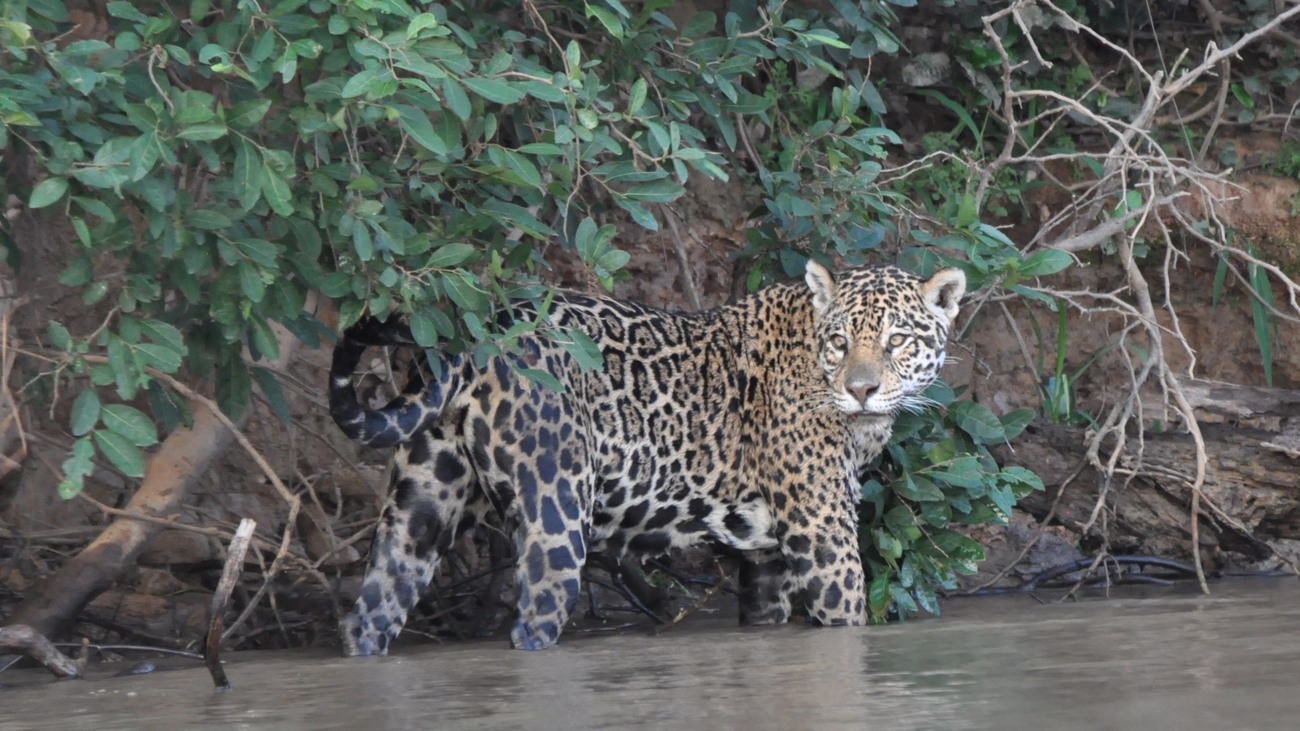Operation Jaguar - South America
To protect jaguars in the Americas, we are helping to fight the growing threat of illegal wildlife tradeBolivia arrests five jaguar traffickers following Operation Jaguar investigation
Bolivia arrests five jaguar traffickers following Operation Jaguar investigation

Bolivian authorities arrested five of South America’s top jaguar traffickers following a three-year investigation as part of our project Operation Jaguar. The criminals—Chinese nationals arrested for trafficking jaguar parts from Bolivia to China—are now behind bars or out on bail in La Paz, as Bolivia’s Ministry of Environment and Water confirmed on social media.
The arrests came after an extensive investigation by our partner Earth League International (ELI). ELI investigated the criminal networks behind jaguar trafficking in Bolivia from 2018 to 2020 and unveiled the traffickers’ modus operandi and transport methods, routes and geographical hotspots. In 2020, ELI and IUCN NL published a report unveiling the criminal networks behind this illegal wildlife trade in Bolivia.
“We congratulate the Bolivian authorities for their thorough and quick work to put some of the leaders of top environmental crime syndicates behind bars,” said Andrea Crosta, founder and CEO of ELI. “These arrests are a model for how to clamp down on environmental crimes in Bolivia and throughout Latin America. We were happy to collaborate with the Bolivian authorities and we look forward to working together on many more projects.”
Jaguar populations are diminishing
Poaching and trafficking are contributing to the diminishing of wild populations of jaguars (Panthera onca) and ravaging their broader ecosystems in its native South America. Jaguars are poached for their meat, fangs, bones, skin, penis and testicles.
“Jaguars suffer a double threat,” explains Liliana Jauregui of IUCN NL. “Jaguar fangs and parts are trafficked per se, but are also suspected to substitute tiger canines due to their very large size. Infrastructural developments and the influx of international companies in recent years have been indirect drivers for the surge in jaguar trafficking in Bolivia, both through opening up previously inaccessible wilderness territory and providing new sources of consumer demand.”
Both domestic and international markets tend to use jaguar products for cultural or medicinal purposes, as trophies, decorations or souvenirs, or live animals for the pet industry. Currently, Bolivia is the country with the highest number of recorded jaguar seizures. However, dwindling jaguar populations are a concern for all range countries and according to the latest CITES jaguar study, this is an issue in the Latin America and Caribbean region as well as abroad.
“Bolivia is the only country in South America that has put jaguar traffickers behind bars for the second time, the first time being in 2018,” said Joaquin de la Torre, Regional Director for Latin America at IFAW. “As part of Operation Jaguar, IFAW also works with law enforcement authorities in Peru, Guyana and Suriname to improve their capacities to better detect and prosecute these criminals. If we do not address this illegal trade now with local, regional and international collaboration this could mean the end for many already endangered jaguar populations.”
Unfortunately, the jaguar as a species is at a tipping point and the actions we take today to deter the poaching and trafficking of jaguars will determine their chance of survival. Now, more than ever, it is extremely important to work with authorities in local, transit, and destination markets to make a concerted effort to curb the trade in jaguars.
Related content
Our work can’t get done without you. Please give what you can to help animals thrive.